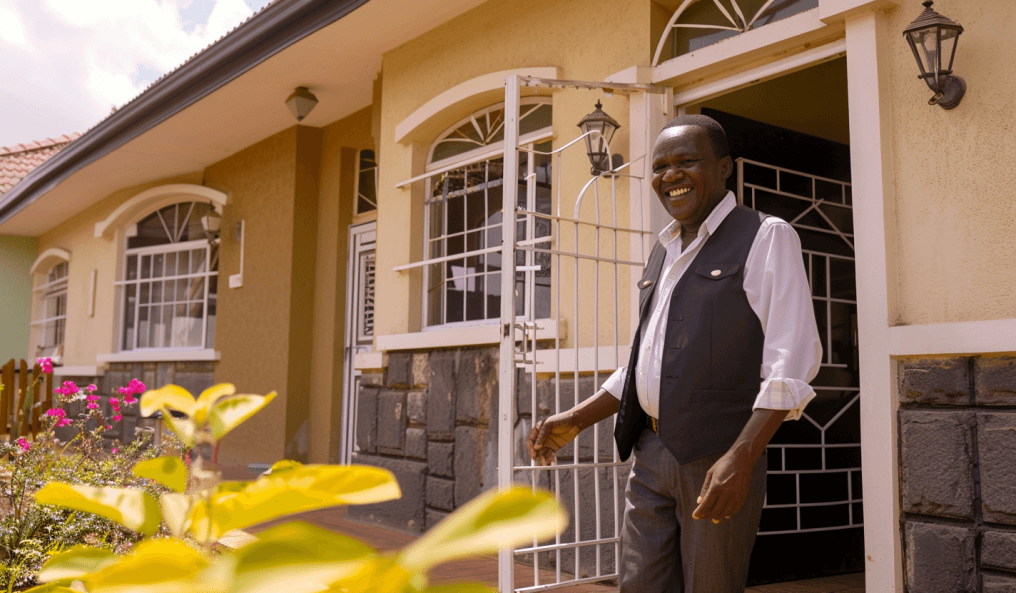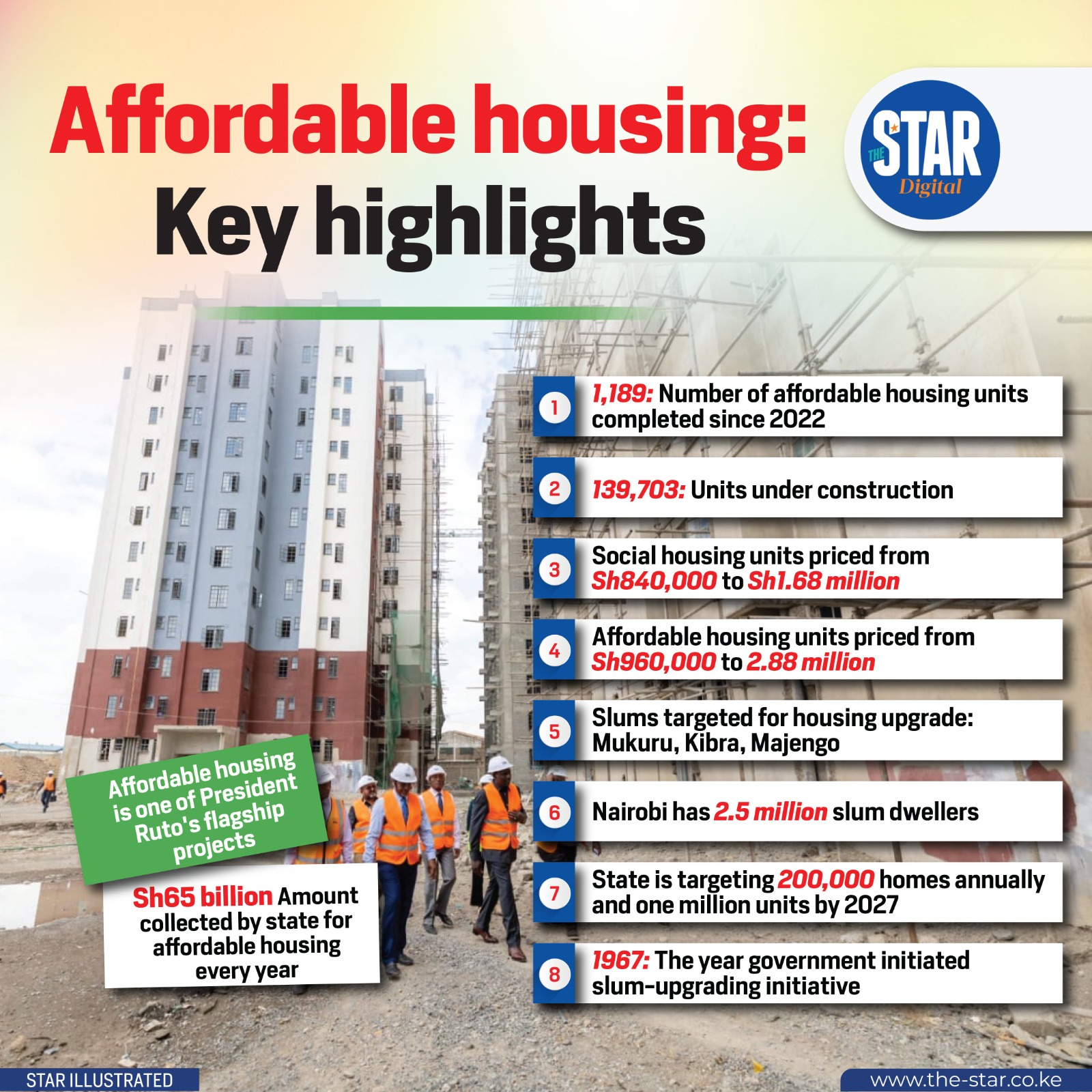The Nairobi real estate market continues to grow and evolve in 2025, driven by rapid urbanization, infrastructure upgrades, shifting consumer preferences, and government policy reforms. Whether you're a property investor, developer, or home buyer, staying updated with Nairobi’s market trends is crucial to making smart decisions in the current economic climate. This comprehensive guide will delve into the key trends shaping the city’s property landscape, offering insights for both prospective homeowners and astute investors.
1. Explosive Growth in Satellite Towns
In 2025, the narrative of Nairobi's real estate expansion increasingly revolves around its satellite towns. Areas such as Kitengela, Athi River, Syokimau, Ruaka, and Ruiru are experiencing unprecedented growth, becoming magnets for residential development. The primary driver for this outward migration is the availability of more affordable land and housing options compared to Nairobi’s Central Business District (CBD) and established upper-middle-class estates like Kilimani, Lavington, and Kileleshwa. Connectivity has been a game-changer; significant infrastructure projects like the Nairobi Expressway and the Eastern Bypass have dramatically reduced commuting times, making these peripheral areas viable and attractive for those working in the city. This improved accessibility translates into a higher quality of life, as residents can enjoy larger living spaces and a more serene environment without sacrificing urban conveniences. Developers are keen on these zones, recognizing the burgeoning demand from a burgeoning middle class seeking value and space.
2. Surging Demand for Affordable Housing
The Kenyan government's unwavering commitment to the Affordable Housing Programme (AHP) has significantly reshaped the market in 2025. This year has witnessed a marked increase in developments specifically targeting middle- and low-income earners. Projects in strategically important areas like Ngara, Pangani, and Starehe are either reaching completion or have already been handed over, providing tangible results of the AHP's efforts. These initiatives are creating unprecedented opportunities for first-time homebuyers, particularly civil servants and young urban professionals, to achieve homeownership. The demand for compact, functional units, primarily 1- and 2-bedroom apartments, remains exceptionally strong, reflecting a practical approach to urban living and a shift from traditional larger family homes due to economic realities and changing household structures. The government's continued support, often through land provision and tax incentives for developers, ensures that this segment of the market will remain a key growth area.
3. High-End Apartments Face Market Saturation
A notable trend carrying over from previous years into 2025 is the oversupply of luxury apartments, particularly in Nairobi’s traditionally prime residential areas such as Kilimani, Lavington, and Westlands. This segment has faced a challenging period, with high vacancy rates persisting and prices experiencing stagnation. Investors, having observed these dynamics, are exhibiting increased caution when considering luxury units. The focus is unmistakably shifting towards segments that promise more reliable returns, specifically affordable rental units and meticulously planned gated communities. This pivot indicates a market correction where speculative investments in high-end properties are giving way to more fundamentally driven demand for accessible and practical housing solutions. Developers in this space are now compelled to innovate or diversify their portfolios to stay competitive.
4. Gated Communities & Lifestyle Estates Reign Supreme
The preference for security, shared amenities, and a communal lifestyle is defining modern buyer behavior in 2025. Gated communities and integrated lifestyle estates are experiencing exceptionally high demand. Developments such as Tilisi Views, Tatu City, and Migaa Golf Estate exemplify this trend, offering more than just housing; they provide an entire ecosystem. These estates are thoughtfully designed to include green spaces, reputable schools, accessible hospitals, and convenient shopping facilities, all within a secure and well-managed environment. This holistic approach to living appeals to both local Kenyan buyers and the diaspora, who increasingly prioritize safety, convenience, and a higher quality of life for their families. The value proposition extends beyond the individual unit, encompassing the entire community's infrastructure and services.
5. Technology Integrates Deeper into Property Search
In 2025, the digital transformation of the property sector is complete. Online property search platforms and virtual property tours are no longer novelties but standard industry practice. Websites like BuyRentKenya and Property24 have evolved to offer sophisticated filtering capabilities, immersive 3D walkthroughs, and direct communication channels between sellers and potential buyers. Furthermore, social media platforms, especially visual-centric ones like TikTok and Instagram Reels, have emerged as powerful marketing tools, captivating younger investors with dynamic property showcases and virtual open houses. This digital reliance streamlines the property search process, making it more efficient and accessible, particularly for diaspora investors who can conduct significant due diligence remotely.
6. Student Housing: A Burgeoning Investment Frontier
With university enrollments consistently on the rise and on-campus accommodation remaining insufficient, purpose-built student housing (PBSA) is rapidly gaining momentum as a lucrative investment niche. Areas strategically located near major universities like Kenyatta University, JKUAT, and Daystar are witnessing significant investor interest. The trend favors furnished, Wi-Fi-enabled studio units or shared apartments with communal amenities. Investors are tapping into this largely underserved market, recognizing the stable demand from a continuous influx of students. This sector offers attractive rental yields and a relatively low vacancy risk, making it an appealing alternative to traditional residential investments.
7. Short-Term Rentals Experience a Strong Rebound
Following a period of uncertainty during the COVID-19 pandemic, Nairobi’s Airbnb and short-term rental market has made a strong rebound in 2025. Prime locations such as Westlands, Kilimani, and Karen are seeing robust demand from business travelers, the Kenyan diaspora returning for visits, and international tourists. The preference for fully-furnished apartments offering flexible lease terms has solidified. However, the market has become increasingly competitive. Success in this segment now heavily relies on strategic branding, professional hosting services, and the provision of premium amenities that differentiate properties from the growing competition. Investment in high-quality furnishings, reliable internet, and excellent customer service are key to maximizing occupancy and profitability.
8. Sustainability at the Forefront of Construction
Green buildings and eco-conscious developments are no longer niche concepts but are gaining significant traction across Nairobi’s real estate landscape. Developers are increasingly incorporating sustainable design principles, such as the installation of solar panels, efficient rainwater harvesting systems, and energy-efficient building materials. This trend is driven by a dual motivation: reducing utility bills for residents and minimizing the environmental impact of construction and living. Beyond environmental benefits, embracing sustainability aligns with global Environmental, Social, and Governance (ESG) investing standards, attracting a new wave of ethically conscious investors and increasing the long-term value and marketability of properties.
9. Office Space Market Transforms and Recovers
Nairobi’s office space sector, which experienced a slowdown in the immediate post-pandemic era, is seeing a modest but definite recovery in 2025. The recovery is characterized by a significant transformation in tenant preferences. Businesses are increasingly opting for smaller, more flexible office spaces that support hybrid work models. Co-working spaces, particularly in well-connected areas like Upper Hill, Kilimani, and Westlands, are in high demand among startups, freelancers, and remote teams. The emphasis is on modern designs, high-speed internet connectivity, and easy accessibility. This shift signals a move away from large, traditional office footprints towards more agile and adaptable workspaces that cater to the evolving nature of work.
10. Sustained Foreign Investment in Real Estate
Nairobi continues to be a highly attractive destination for foreign direct investment in real estate, particularly from China, the Middle East, and the burgeoning Kenyan diaspora. Key areas of focus for these investors include joint ventures with local developers, off-plan property sales, and large-scale commercial real estate projects. The relative stability of the Kenyan Shilling and ongoing regulatory clarity initiatives by the government have further enhanced investor confidence, reducing perceived risks and making the market more appealing for international capital. This influx of foreign capital continues to drive large-scale development projects and introduces global best practices into the local market.
11. Title Deed Reforms & Digitization Enhance Transparency
The Ministry of Lands’ ongoing push for full digitization of land records through the Ardhisasa platform is a critical development in 2025. This initiative is significantly improving transparency and efficiency in land transactions. As more Nairobi properties become accessible online, the risks of land fraud are substantially reduced, and the process of verifying ownership and conducting due diligence becomes more streamlined. This move is particularly beneficial for diaspora investors, who can now remotely verify property details with greater confidence, thereby de-risking their investments from afar. The digital transformation is fostering a more secure and predictable land market.
12. Shifting Rental Yields & ROI Expectations
In 2025, rental yields in Nairobi exhibit considerable variation based on property type and location. Affordable housing units in satellite towns are generally offering average annual yields of 6–9%, reflecting strong demand and lower entry costs. Conversely, high-end neighborhoods are experiencing much lower yields due to market saturation and increased competition among landlords. The best-performing segments in terms of return on investment (ROI) are clearly identified as gated communities, purpose-built student housing, and strategically developed mixed-use developments. These segments demonstrate resilience and consistent demand, making them the most attractive for investors seeking reliable income streams and capital appreciation.
Conclusion: Nairobi’s 2025 Outlook - Navigating a Dynamic Market
As 2025 progresses, Nairobi's real estate market presents a compelling blend of opportunities and inherent risks. Success for any investor or homebuyer hinges on their ability to adapt to these emerging trends. The shift towards affordable housing, the sustained appeal of gated estates, and the increasing reliance on digital property management tools are not merely passing fads but fundamental shifts in the market's structure. In an environment characterized by evolving economic dynamics, data-driven decision-making and rigorous due diligence are paramount. These practices will serve as key differentiators, separating successful buyers and investors from those who might struggle.
Whether your aim is to purchase a family home, invest in rental property, or embark on a new development project, a nuanced understanding of Nairobi’s real estate trends in 2025 is your indispensable key to long-term success. Staying informed, thinking strategically, and proactively consulting with industry experts are not just recommendations but necessities to make the absolute most of Kenya’s vibrant and dynamic property market. The opportunities are abundant for those willing to engage with foresight and diligence.




